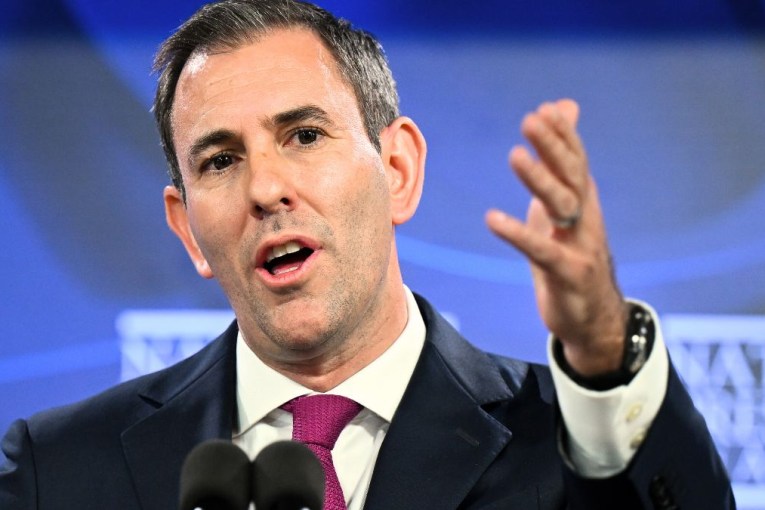Greece strikes bailout deal, triggering political turmoil

Getty
Greek Prime Minister Alexis Tsipras returned to Athens on Monday a changed man after marathon talks with European creditors sealed a last-gasp bailout deal for his debt-ravaged country.
While Mr Tsipras has secured an €86 billion ($A128 billion) bailout that will rescue the Greek economy from oblivion, he now has only three days to enact a raft of economic reforms in the Greek Parliament under the terms of the deal with creditors.
The compromises made by Mr Tsipras and his new finance minister Euclid Tsakalotos are many and profound, and have triggered a formal split in his socialist Syriza party. Already, up to 21 Syriza hardliners have signalled their intention to abandon Mr Tsipras.
• PM’s displays deep well of hostility to clean energy
• Q&A a bump in the road: Turnbull
• ‘Vulnerable to suffer’ from solar energy cuts

Greek Prime Minister Alexis Tsipras at the end of the EU summit. Photo: Getty
On Monday night several of Mr Tsipras’ hardline frontbenchers, including his labour minister Panos Skourletis, questioned whether the government could survive the agreement.
“Right now there is an issue of a government majority,” Mr Skourletis told the state-owned ERT television station. “We are not trying to make this deal look better, and we are saying clearly this deal is not us.”
That means the Greek government is poised for an overhaul, with Mr Tsipras’ remaining Syriza supporters potentially set to join forces with politicians from centrist parties to establish a government of national unity.

Shoppers stand in an aisle with empty shelves in a supermarket in Athens.
Mr Tsipras is likely to draw support in the parliament for the bailout package from the conservative New Democracy party, moderate leftists from the PASOK party, and independents from To Potami (The River party).
Syriza controls 149 seats in the 300-member national parliament and currently relies on support from a Eurosceptic party, The Independent Greeks, to govern the country.
The 72-hour deadline set by European creditors for the first stage of the reform program means that a realignment of political power must occur in Athens within the next 24 hours. It probably also means that national elections are likely to be called after the bailout program is bedded down in November.
What the Greeks got
The Greek government has secured €50 billion in new loans to cover imminent debt repayments and government financing. It has also negotiated a €25 billion package to recapitalize the country’s cash-strapped banks. The government is also likely to receive bridging loans to cover €3.5 billion worth of debt that is due to be repaid by July 20.
What the Greeks conceded
These bailout support measures are all contingent on Greece implementing a rigorous program of austerity and structural reform. By Wednesday July 15, the Greek government has agreed to enact the following reforms:
• Increases to indirect taxes, including extension of a 23 per cent Value Added Tax to most goods and services
• Across-the-board cuts to pensions
• Automatic spending cuts to government departments
• Enshrine in law the legal independence of the Greece’s bureau of statistics, known as ELSTAT
The following reforms must be legislated by July 22:
• Introduce a code of civil procedure to improve access to and timeliness of judicial process
• De-politicisation of public service appointments
• By October the government is required to legislate the following sweeping reforms after consulting its lenders:
⇒ labour market reform, including “modernisation of collective bargaining”
⇒ privatising the electricity transmission network
⇒ Deregulation of trading hours, including introduction of Sunday trading
⇒ Removal of barriers to entering certain professions
⇒ establish a special fund to privatise “valuable” state-owned enterprises worth up to €50 billion
The privatisation program and labour market reforms will put Mr Tsipras on a collision course with trade unions that heavily backed his election to office in February.
This is likely to drive a split among rank-and-file members of the party, many of whom are public servants whose jobs have been reinstated by the government in recent months.
Domestic pressure was enormous
European stockmarkets rallied after news of the deal was broken by Donald Tusk, president of the European Council.
In early trading on Monday the German and French sharemarkets rose by around 1.5 per cent. The Euro was rallying against most major currencies on Monday night, except the British pound. The standoff over a new debt bailout has paralysed the Greek banking system in the past two weeks and has severely disrupted the commercial and social fabric of the country.
The freezing of banking services has caused serious shortages of medicines in pharmacies across the country and prevented the importation of meat and other foodstuffs by supermarket chains.
Greece’s largest industry – tourism – has also taken a big hit, with holidaymakers abandoning stays in the Aegean Islands because of problems accessing cash.

Reading all about it: Greek citizens read the newspapers after a historic bailout is pledged. Photo: Getty
Public anger towards the German government reached fever pitch over the weekend, with newspapers portraying the call for more austerity from German Chancellor Angela Merkel as a punishment to Greeks who voted against the terms of Europe’s first bailout offer two weeks ago. The front-page headline of Athens’ morning newspaper Democratia on Monday was “Greece in Auschwitz”.
In a controversial move, German finance minister Wolfgang Schauble issued a written demand on Sunday that required the Greek government transfer state-owned assets to a Luxembourg investment fund owned by Germany’s KfW Bank.
The German government owns KfW Bank and its board is chaired by Mr Schauble. The Greeks were able to negotiate for the privatisation fund to be domiciled in Athens. Mr Schauble’s demand was widely condemned by European newspapers and prominent international economists.
Germany’s national newspaper Der Spiegel described Germany’s bailout offer as “a catalogue of horrors”, while British Tory MP Boris Johnson accused Mr Schauble of trying to impose “a tyranny” on Europe.
Nobel Prize economist Paul Krugman accused the German government of trying to exploit the debt crisis to usurp the public assets of Greece, describing the German demands as “vindictive”.








